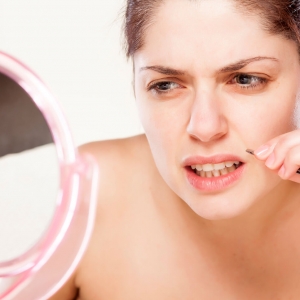
Dr. Kevin McKerrow
DERMATOLOGIST
+ SEE BIO
Polycystic Ovary Syndrome (PCOS) can often initially be treated by your GP. But once the symptoms start to affect the way you look and feel, it may be time to see a Specialist. Our Dermatologists can give you expert advice and offer you alternatives for treating problems like acne, excess hair and oiliness. Most of the effects of PCOS on your appearance can be successfully managed – so give us a call and we can help you plan what to do.
PCOS often comes to light during puberty due to period problems, which affects many of those with the disease. Infrequent, irregular or absent periods are all common variations, many finding their periods particularly heavy when they do arrive. The period disturbance may be a sign that there is a problem with regular monthly ovulation. Many teenagers use the contraceptive pill to control their periods as irregularity or heaviness is a common complaint at this time, even in the absence of PCOS. This often leads to a delay in the diagnosis of PCOS with many people not presenting until the pill is stopped and then finding periods cease or become irregular.
Androgens are a group of hormones, such as testosterone, found at high levels in men but present in women at much lower levels. PCOS sufferers often have higher than normal levels of androgens, which most often cause excess hairiness, but can also cause the reverse, a male pattern of hair loss called androgenetic alopecia.
Given that the period disruption with PCOS is due to irregular or absent ovulation it is not surprising that it is a common cause of infertility. Some women with PCOS will ovulate normally, some will ovulate less frequently (leading to a delay in getting pregnant) and some will not ovulate at all, meaning that for some treatment will definitely be necessary.
Around 40% of PCOS sufferers are overweight. Unfortunately obesity itself simulates the symptoms of PCOS in some women who would not have otherwise suffered had they remained of normal weight. It will worsen the symptoms for those who do have PCOS and, unfortunately, the hormone changes associated with PCOS make weight loss more difficult. Women who are thin or of normal weight can also have PCOS. Your periods may be irregular, and as a result you might be at greater risk for a thickening of uterine lining. This is called endometrial hyperplasia.